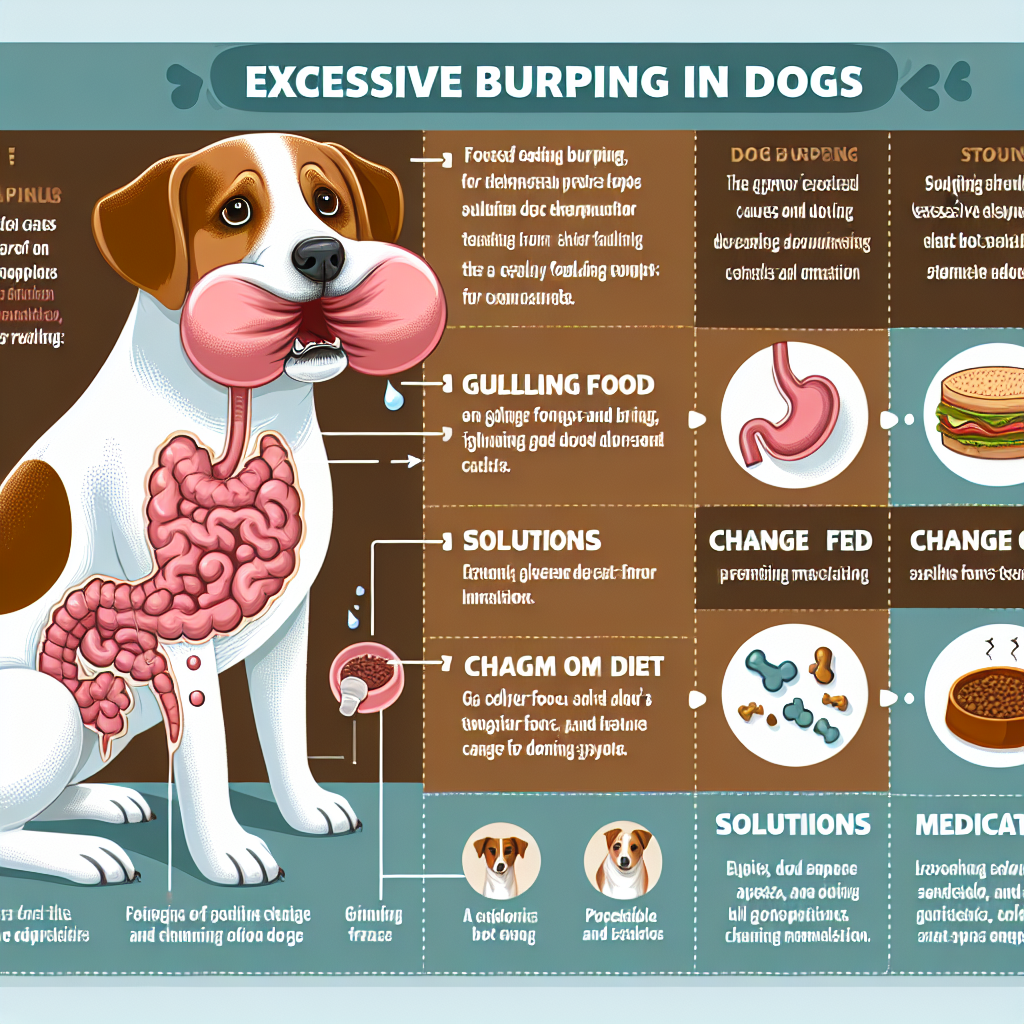===
Excessive burping in dogs can be a source of concern for pet owners. Not only can it signal potential health issues, but it can also disrupt your dog’s daily activities and your peace of mind. Are you tired of your beloved furry friend emitting those frequent and sometimes loud burps? Understanding the underlying causes and effective solutions for excessive burping in dogs is essential for your pet’s well-being and your comfort. In this article, we’ll explore various factors leading to this condition and provide expert insights to help you manage and mitigate these troubling sounds.
Identifying the Underlying Causes of Excessive Burping in Dogs
Understanding why your dog may be burping excessively can transform your approach to their care. One significant contributor is gas accumulation in the stomach, which often results from fast eating or drinking. Dogs, especially those with a voracious appetite, may gulp air along with their food, leading to discomfort and the need to burp. Monitoring your dog’s eating habits can provide critical insights into this potential cause, allowing for timely intervention.
Another factor to consider is dietary indiscretion. Canine diets that are high in fats or contain ingredients that are difficult to digest can result in gastrointestinal upset, manifesting as burping. Certain table scraps, especially those rich in spices or grease, can exacerbate this issue. If your dog frequently scavenges for food or indulges in less-than-ideal snacks, adjusting their diet and preventing access to human food could lead to a significant reduction in burping.
Lastly, underlying health issues—such as gastrointestinal diseases or infections—can also contribute to excessive burping. Conditions like gastritis, pancreatitis, or even food allergies can cause disruptions in the normal digestive process, leading to increased gas production. If burping is accompanied by other symptoms like vomiting, lethargy, or diarrhea, consulting with a veterinarian is crucial for a thorough diagnosis and appropriate treatment plan.
Effective Solutions and Treatments for Burping Issues in Dogs
Once the causes of excessive burping are identified, implementing effective solutions becomes paramount. A common strategy is to modify the feeding routine. Using slow feeders or puzzle bowls can significantly encourage dogs to eat at a slower pace, reducing the amount of air they swallow. Additionally, dividing meals into smaller portions throughout the day can help minimize the likelihood of gas build-up, creating a smoother and more digestible eating experience.
Another valuable approach is to reassess the dog’s diet. Transitioning to high-quality, easily digestible dog food can alleviate gastrointestinal distress. Foods with limited ingredients or those specifically designed for sensitive stomachs can be game-changers. Additionally, steering clear of table scraps and human food can help maintain a balanced diet that minimizes digestive upset. It’s also wise to consult your veterinarian for tailored dietary recommendations based on your dog’s specific needs.
Lastly, incorporating probiotics into your dog’s regimen can enhance gut health and reduce excessive burping. These beneficial bacteria help balance the digestive system, improving nutrient absorption and minimizing gas production. Be sure to choose a probiotic specifically formulated for dogs, and consult your vet for recommendations on dosages and suitable products. This approach can lead to long-term benefits, ensuring your dog enjoys a happy, healthy digestive system.
===
In conclusion, excessive burping in dogs can stem from various factors, including eating habits, diet, and underlying health issues. By identifying these causes and implementing effective solutions, you can significantly reduce your dog’s burping episodes and improve their overall quality of life. Stay vigilant and proactive in your pet’s care; it’s essential to create a comfortable environment for them and peace of mind for you as an owner. If excessive burping persists or is accompanied by other unsettling symptoms, don’t hesitate to reach out to a veterinarian for comprehensive guidance and support. Your four-legged companion deserves the best care possible, and with the right knowledge, you can ensure their health and happiness!
